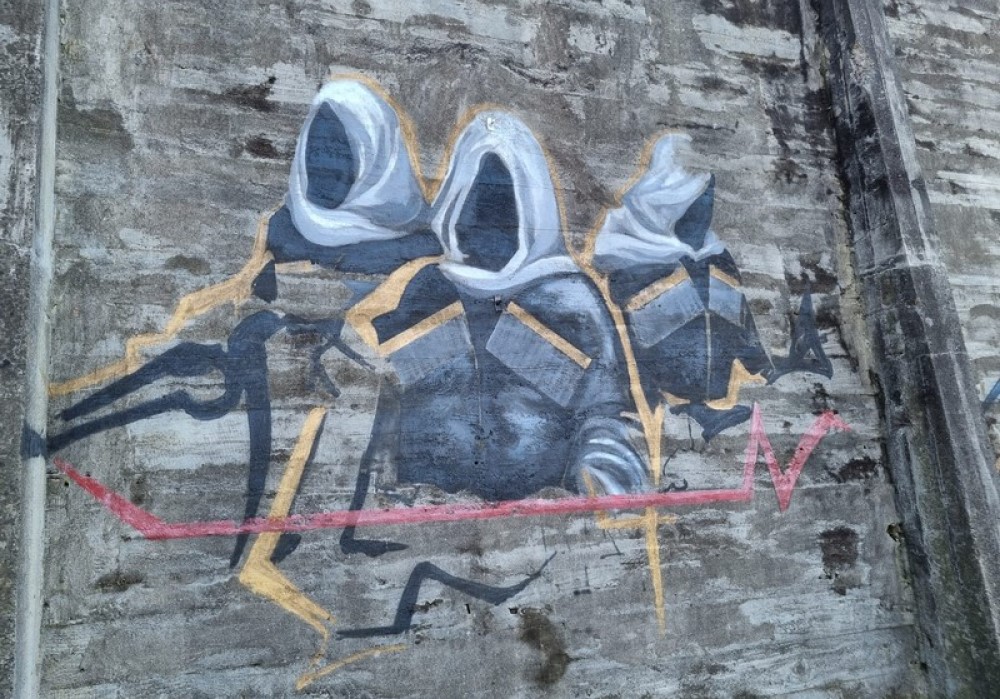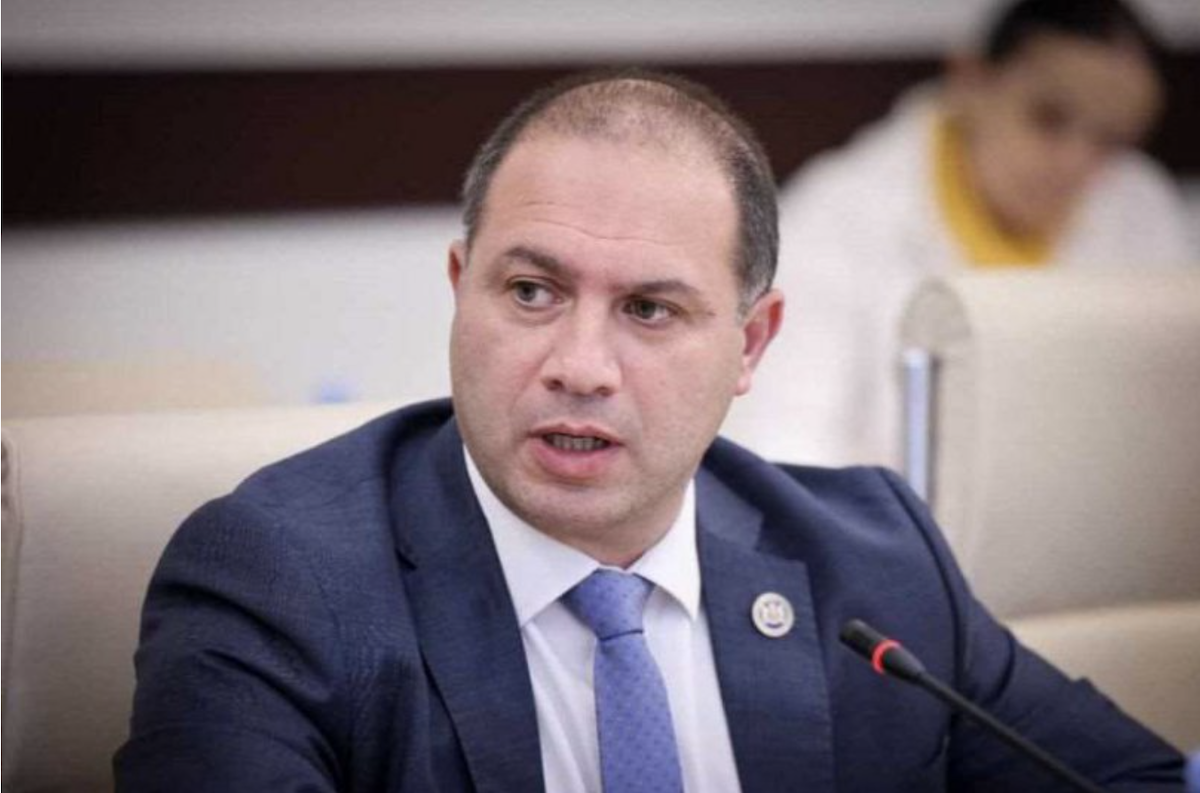Opposition in Abkhazia says, it has been inflicted a major setback
Aslan Bzhania, the Abkhaz opposition leader, was detained twice by the Russian militia over the weekend. And it was only late on Sunday, December 4, that he managed to finally enter Abkhazia via the Psou.
The whole story has caused a big stir in Abkhazia and is likely to seriously affect already deep political crisis in Abkhazia. Especially as before Bzhania’s detention, the opposition had announced about its plans to convene the all-nation gathering on December 15 and demand President Khajimba’s voluntary resignation ahead of term.
 Aslan Bzhania
Aslan BzhaniaChronology of developments:
It all started late on December 3. There came media and Facebook reports that Aslan Bzhania had been arrested when crossing the border from Russia. Political board of the opposition ‘Amtsakhara’ party immediately, almost at night, held an emergency expanded session and the party statement was released after midnight.
The party blamed Sochi militia for detaining Aslan Bzhania under the ‘far-fetched pretexts’. In particular, according to those, who accompanied Bzhania, one of those, who detained him, was wearing civilian clothes. He accused Bzhania of involvement in ‘hostile activities against Russia and Abkhazia.’
“For two days, A.G. Bzhania was taken to Cochi IACD [Internal Affairs Central Directorate] on the number of occasions, where he was interrogated… On December 3, when crossing the Russian-Abkhaz border, during the passport control, A.G. Bzhania was taken to a separate room. Soon a car with law-enforcement officers arrived and he was escorted to Sochi IACD.
‘Amtsakhara’ claimed, the party had no doubts that the pressure ‘on the co-chair of the Bloc of opposition forces was carried out on the request of the Abkhaz leadership.’
A number of other opposition organizations of Abkhazia also made an appeal, calling on the authorities not to further aggravate already difficult socio-political situation in the country.
Early on Sunday, December 4, Abkhaz President’s press service released a statement, responding to the opposition’s accusations.
“A hasty and unsubstantiated statement made by political board of the ‘Amtsakhara’ party misleads the population and is once again aimed at artificial escalation of political situation in the country.’
The President’s press service called on the opposition to demonstrate political self-possession and wait for the competent agencies’ official information.
Early on Sunday, December 4, Bzhania’s supporters from his native Tamysh village, blocked in protest the central highway leading to Sukhum, thus causing a huge traffic jam.
Journalists from the Abkhaz State Broadcaster contacted Aslan Bzhania on the phone. “I haven’t been allowed to leave the territory of the Russian Federation for 3 days already. They let me go home in the evening, but when I try to get to the border, I’m not allowed to cross it. I am in the Sochi police department now. They have instituted criminal proceedings, but I don’t remember exactly under which article. Allegedly for illegal possession of ammunition. I have all the documents. Yesterday we figured out everything. I didn’t sign a written pledge not to leave the city. Other preventive measures against me were not relevant, Aslan Bzhania told journalists on the phone.
Abkhaz Interior Minister, Aslan Kobakhia, held a briefing at noon, on December 4. As he told journalists, he had addressed Lieutenant Colonel Stanislav Apsava, Russian MoI representative in Abkhazia, with an official letter early that morning.
As it was pointed out in the letter that he received in response to his official inquiry, Aslan Bzhania had allegedly illegally possessed 15 units of ammunition to a premium ‘GLOCK’ gun. It was also noted that after interrogation, Bzhania had been released without any preventive measures taken against him.
The Minister said, it was not an isolated case of detention of the Abkhazian political and public figures at a checkpoint on the Psou River. ‘When I was an MP, it once took me 4 hours to cross the border. I know the cases when the same thing happened to the representatives of non-governmental organizations. Many people were stopped at the airport, said Kobakhia.
Then the Interior Minister commented on the opposition’s statements: “We flatly deny any allegations that the aforesaid had been commissioned by the Abkhaz authorities. If the Abkhaz authorities have questions to Mr. Bzhania, we will put those questions to him on the territory of Abkhazia, at any time, in a transparent and human manner. We should, under no circumstances, sort things out between each other using the law-enforcement agencies of the neighboring state, said Aslan Kobakhia.
In the afternoon on Sunday, December 4, the Abkhaz National Security Council convened an emergency meeting to address the situation with Bzhania’s detention.
Muhamed Kilba, the Security Council Secretary, told journalists following the meeting, some members of the opposition were purposefully fueling up tensions. Therefore, Abkhaz President, Raul Khajimba, tasked the executives of relevant agencies to take preventive measures in response to possible development of the situation.
“The statements voiced by some politicians are inappropriate and discourteous with respect to our colleagues from the Russian Federation. Let me assure you that none of the government officials, in particular the President, use such methods, said Kilba.
During the day on Sunday, December 4, Abkhaz President Raul Khajimba, received the Ambassador of the Russian Federation to Abkhazia, Semen Grigoryev. The situation with Aslan Bzhania was discussed at the meeting. Khajimba requested Russian Ambassador to furnish explanations in connection with the incident, as well as to ensure his unhampered travel to Abkhazia.
On the same day, the meeting with Grigoryev took place in the office of the bloc of opposition forces.
By 8 p.m., on Sunday, December 4, there came reports that Aslan Bzhania, a co-chair of the Bloc opposition forces, had been allowed to cross the Russian-Abkhaz border, and he entered the territory of Abkhazia. Bzhania called the representatives of those, protesting in Tamysh village, and requested to unblock the highway. About 500 people and 200 vehicles,that had been blocking the motorway, dispersed almost immediately.
The bloc of opposition forces expressed gratitude to the Ambassador of the Russian Federation to Abkhazia, Semen Grigoryev ‘for his prompt assistance in resolving the incident and personal involvement in relaxing tension in the socio-political situation.’
Late on Sunday, December 4, AslanBzhania arrived in Tamysh village.
 Bzhania’s supporters from his native Tamysh village, blocked in protest the central highway leading to Sukhum
Bzhania’s supporters from his native Tamysh village, blocked in protest the central highway leading to Sukhum
· Aslan Bzhania, ex-chief of the Abkhaz National Security Service (2010-2014). He ran for president in 2014 election and was the second after the incumbent president, Raul Khajimba, with 35% of votes. After the election, he became an informal leader of the opposition, which united in a separate bloc – the ‘Bloc of opposition forces’,which included эAmtsakharaэ, a party of the veterans of war with Georgia, as well as 3 non-governmental organizations: ‘Women in Politics’, ‘Abzankhara’ and ‘Apra’.
· ‘Amtsakhara’ party is the hugest opposition organization in Abkhazia. It was set up in 1999, as a public and political organization of the veterans of war with Georgia. In 2004, it nominated Sergey Bagapsh as a presidential candidate. Bagapsh won the presidential race. In 2012, the organization was reshaped into a political party. Until summer 2014, ‘Amtsakhara’ was regarded as the leadership’s major backbone. However, there was an assault on the presidential palace in summer 2014 and President Ankvab was forced to resign from his post under the opposition’s pressure. ‘Amtsakhara’ party, which supported Alexander Ankvab, also had to move into opposition, terming the developments in the country as a ‘coup’. During the snap presidential election in Abkhazia, the party supported Aslan Bzhania, who came the second, yielding the precedence to Raul Khajimba.
· At ‘Amtsakhara’ party’s extraordinary congress on November 30, the united opposition announced about its plans to convene the popular gathering on December 15, during which it would demand President Khajimba’s early resignation.
The opinions expressed in this article convey the author’s views and the terminology used do not necessarily reflect the views or opinions of the editorial staff



















